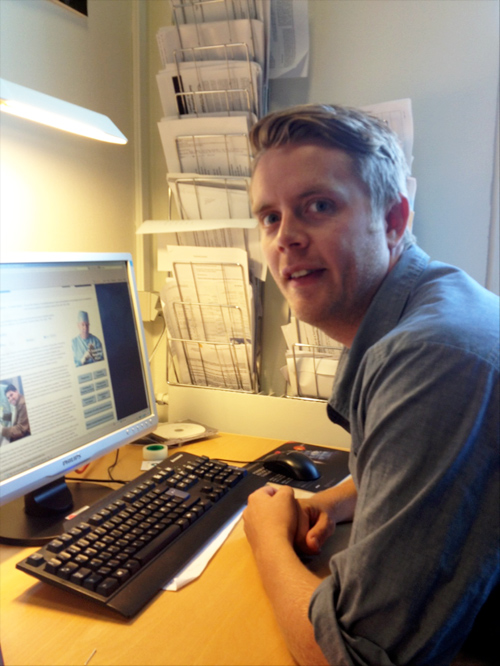BERKELEY, CA (UroToday.com) - Management of high-risk prostate cancer ≥cT2c or biopsy Gleason score ≥8 or PSA>20) is one of the current hot topics in uro-oncology.
The optimal therapeutic strategy for high-risk prostate cancer is controversial. Randomized trials have shown that the combination of external beam radiation therapy and endocrine therapy can improve survival. Radical prostatectomy for high-risk disease has never been compared to radiation therapy in randomized trials. Recent data from the Scandinavian Prostata Cancer Group Study 4 and the  American PIVOT-trial suggest that high-risk patients seem to be the group of patients that benefit the most from radical prostatectomy compared to watchful waiting or observation.[1, 2] To further improve the outcome after radical prostatectomy, several studies have investigated the effect of adjuvant and salvage regimens for high-risk patients. Post-operative radiotherapy is shown to increase the biochemical recurrence-free survival in the EORTC 22911 and ARO 96-02/AUO AP 09/95 trials.[3, 4] One study by Thomson et al. has further demonstrated this to translate into improvements in metastasis-free and overall survival.[5] Whether post-operative radiation therapy should be administered to all patients with high-risk histopathological features following surgery (adjuvant therapy) or only used in patients experiencing a rising PSA (salvage radiotherapy) is controversial. We sought to examine the outcome of our high-risk patients undergoing radical prostatectomy at our institution to elucidate the risk for biochemical recurrence in our cohort.
American PIVOT-trial suggest that high-risk patients seem to be the group of patients that benefit the most from radical prostatectomy compared to watchful waiting or observation.[1, 2] To further improve the outcome after radical prostatectomy, several studies have investigated the effect of adjuvant and salvage regimens for high-risk patients. Post-operative radiotherapy is shown to increase the biochemical recurrence-free survival in the EORTC 22911 and ARO 96-02/AUO AP 09/95 trials.[3, 4] One study by Thomson et al. has further demonstrated this to translate into improvements in metastasis-free and overall survival.[5] Whether post-operative radiation therapy should be administered to all patients with high-risk histopathological features following surgery (adjuvant therapy) or only used in patients experiencing a rising PSA (salvage radiotherapy) is controversial. We sought to examine the outcome of our high-risk patients undergoing radical prostatectomy at our institution to elucidate the risk for biochemical recurrence in our cohort.
Between 1995 and 2010, a total of 231 high-risk patients underwent radical prostatectomy at our institution. This cohort represents the first series of high-risk prostate cancer treated in Denmark. Our data is strengthened by the fact that no patient received endocrine treatment or radiotherapy postoperatively before biochemical progression was confirmed. This is contrary to the majority of other publications. Therefore time to biochemical recurrence is not affected by adjuvant treatment regimens in our cohort. Patients were followed for biochemical recurrence (BR) (defined as PSA≥0.2 ng/ml), metastatic disease and survival.
We found an estimated 10-year biochemical recurrence-free survival was 49%. The 10-year metastasis-free survival was 81%. The 10-year overall survival was 84%. Estimated cause-specific survival after 10 years was 90%. In multivariate analysis, extra capsular seminal vesicle invasion and young age were significant predictors of BR.
Our results confirm that a significant proportion of patients with high-risk PCa remain biochemically disease-free and without need for ET following RP as primary and only treatment. With further investigation we can identify those patients who can be spared the side-effect of endocrine therapy that follows radiotherapy. A large randomized study of radical prostatectomy as primary therapeutic strategy versus the combination of EBRT and endocrine therapy in patients with high-risk localized PCa seems warranted.
References:
- Wilt TJ, Brawer MK, Jones KM, Barry MJ, Aronson WJ, Fox S, Gingrich JR, Wei JT, Gilhooly P, Grob BM, Nsouli I, Iyer P, Cartagena R, Snider G, Roehrborn C, Sharifi R, Blank W, Pandya P, Andriole GL, Culkin D, Wheeler T. Radical prostatectomy versus observation for localized prostate cancer. N Engl J Med 2012; 367:203-213.
- Bill-Axelson A, Holmberg L, Ruutu M, Garmo H, Stark JR, Busch C, Nordling S, Haggman M, Andersson SO, Bratell S, Spangberg A, Palmgren J, Steineck G, Adami HO, Johansson JE. Radical prostatectomy versus watchful waiting in early prostate cancer. N Engl J Med 2011; 364:1708-1717.
- Bolla M, van PH, Collette L, van CP, Vekemans K, Da PL, de Reijke TM, Verbaeys A, Bosset JF, van VR, Marechal JM, Scalliet P, Haustermans K, Pierart M. Postoperative radiotherapy after radical prostatectomy: a randomised controlled trial (EORTC trial 22911). Lancet 2005; 366:572-578.
- Wiegel T, Bottke D, Steiner U, Siegmann A, Golz R, Storkel S, Willich N, Semjonow A, Souchon R, Stockle M, Rube C, Weissbach L, Althaus P, Rebmann U, Kalble T, Feldmann HJ, Wirth M, Hinke A, Hinkelbein W, Miller K. Phase III postoperative adjuvant radiotherapy after radical prostatectomy compared with radical prostatectomy alone in pT3 prostate cancer with postoperative undetectable prostate-specific antigen: ARO 96-02/AUO AP 09/95. J Clin Oncol 2009; 27:2924-2930.
- Thompson IM, Tangen CM, Paradelo J, Lucia MS, Miller G, Troyer D, Messing E, Forman J, Chin J, Swanson G, Canby-Hagino E, Crawford ED. Adjuvant radiotherapy for pathological T3N0M0 prostate cancer significantly reduces risk of metastases and improves survival: long-term followup of a randomized clinical trial. J Urol 2009; 181:956-962.
Written by:
M. Andreas Røder,a Kasper Drimer Berg,a Ib Jarle Christensen,b Lisa Gruschy,a Klaus Brasso,a and Peter Iversena as part of Beyond the Abstract on UroToday.com. This initiative offers a method of publishing for the professional urology community. Authors are given an opportunity to expand on the circumstances, limitations etc... of their research by referencing the published abstract.
a Urology Research Unit.
b The Finsen Laboratory, Copenhagen Biocenter and Biotech Research and Innovation Centre (BRIC).
Rigshospitalet, Copenhagen University Hospital
Faculty of Health and Medical Sciences
University of Copenhagen
Denmark

More Information about Beyond the Abstract


